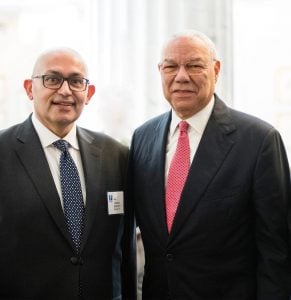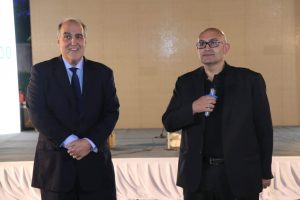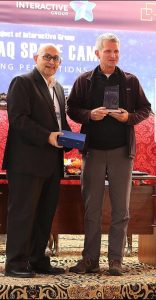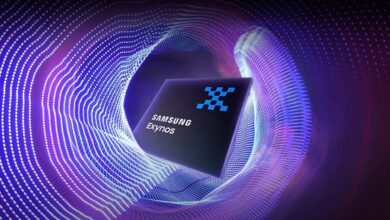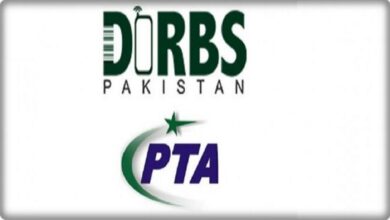An Exclusive Interview with Dr. Shahid Mahmud, CEO interactive
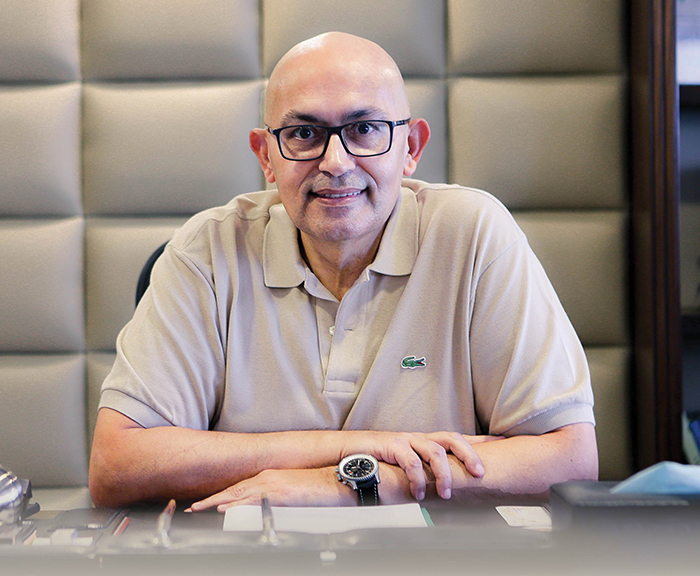
Check out An Exclusive Interview with Dr. Shahid Mahmud, CEO interactive. Dr. Shahid Mahmud (SM) has a PhD in Computer Sciences from Coventry University, United Kingdom. He holds a Master’s degree in Defense & Strategic Studies from National Defense University, Islamabad and an Engineering Degree from NED University, Pakistan, along with more than 31 years of professional experience in the field of ICT. He has served on various federal committees of the Government of Pakistan addressing the formulation and implementation of the National Telecom and IT policies. Dr. Mahmud is 2016 Distinguished Eisenhower Fellow. He is also a Senior Fellow, Global Think Tank Network (GTTN) and Co-Chair for ICT on the Corporate Advisory Council of the National University of Science and Technology (NUST). He is active in several philanthropic activities, working with youth-oriented and community service projects such as Buraq Planetary Society, TRUCE, Begum Mehmooda Welfare Trust and Zubaida Khaliq Memorial Free Hospital.
An Exclusive Interview with Dr. Shahid Mahmud, CEO interactive
He is the founder director and shareholder of Paktel Limited, Indus Vision, Pak Globalstar (Pvt) Limited, SHOA (Pvt) Limited, and Shaheen Pay TV (Pvt) Limited. He has also served as a Director of Askari Bank for over six years.
In recognition for having spent his entire career in promoting IT in Pakistan, Dr. Mahmud was given the Lifetime Achievement Award: at the 12th Teradata National IT Excellence Awards for 2014.
We have designed and deployed the largest number of data centers in Pakistan, and established a niche for developing some of the most complex business automation and data analytics softwares in Pakistan
Phoneworld team (PW) had the pleasure of interviewing him; here is what he had to say.
PW: How Is Interactive different from its competitors?
SM: Our differentiator is quite evident from our motto ‘Fulfilling Hope’. Our society is faced with unique challenges, and Interactive plays its role by solving the pressing issues of our society through technology solutions. Our products and services are inherently innovative, creative and user centric. Also, we have always taken on and successfully delivered complex, large scale (national-scale), challenging IT projects – something that only a very few companies can claim to have undertaken, delivered and sustained in Pakistan.
PW: How would you describe the role of Interactive to someone outside the industry?
SM: Interactive is a forward-looking technology company – a system integrator. We provide creative technology solutions across the whole IT stack, including power infrastructure, systems, networks, storage, communications and complex software systems.
With Intellcare, hospitals are able to provide better efficiency in the services they deliver to patients, overcome pilferages rampant in our healthcare institutions, and are able to deliver better quality healthcare to their patients
We have designed and deployed the largest number of data centers in Pakistan, and established a niche for developing some of the most complex business automation and data analytics softwares in Pakistan. Internationally, we focus on machines learning and AI-based systems – as the market is better prepared in terms of advanced technology adoption – and have already secured two AI related patents at Interactive Coventry (UK). Our AI-based solutions are being used in manufacturing, automotive, transport and process control areas.
PW: What do you think have been your major achievements in the health and education sectors?
SM: Healthcare sector is our primary focus, driven by our passion to address pressing issues of our society. Although our core business is not healthcare, but as a technology company we looked at how we could make a difference where healthcare is actually provided – the hospitals. Our flagship product – Intellcare – is a hospital management information system. It helps automate the business processes that take place at hospitals e.g. patient registration appointment scheduling, doctor-patient encounter, lab tests, pharmacy dispensation, etc. With such a system in place, hospitals are able to provide better efficiency in the services they deliver to patients, overcome pilferages rampant in our healthcare institutions, and are able to deliver better quality healthcare to their patients.
Interactive was one of the pioneers in healthcare information management. It was the first organization to have deployed hospital management information systems across Pakistan in 44 hospitals, which were interconnected. This means that a patient could be anywhere in Pakistan in one of these hospitals and his or her medical record with complete history would be available to the local doctor. Intellcare hospital management information system has been deployed in over 60 hospitals and clinics across Pakistan.
We have worked with all major players to ensure our clients get the best solution for their particular need, rather than the solution that provides the largest profit margin to the contractors and OEMs
Having seen the efficiencies and benefits that Intellcare brought to the healthcare industry, we wanted to do something similar in the education sector. Aldermin is our learning management system for schools, colleges and universities.
PW: How have you approached changes in the IT industry?
SM: We certainly have had to be creative and dynamic. The technology changes rapidly, and our IT market – on the hardware side – is more or less dictated by foreign OEMs. Most of the IT companies in Pakistan rely on innovations, margins and directions defined by these foreign OEMs which is acceptable to an extent because we do not have any alternate, we do not produce these technologies and are reliant on these OEMs.
Client satisfaction is our most important metric of measuring success
However, if one aligns oneself to only one OEM, then it limits the benefits that we can pass on to our customers. So, we have historically not locked ourselves to one or two OEMs; we have worked with all major players to ensure our clients get the best solution for their particular need, rather than the solution that provides the largest profit margin to the contractors and OEMs.
To be able to do this, we had to develop and establish our capabilities both with the OEMs and the client … having a great team, investing in R&D and continuously keeping abreast of the technology as it progresses.
PW: As of now, how do you measure success? What are your metrics?
SM: At various levels, internally we measure how well we carry out projects with respect to costs, time and quality. Externally, client satisfaction is our most important metric of measuring success.
Critically, we evaluate whether our clients have a sustainable solution … if it requires our continuous support, or if it requires re-training, capacity development, etc. If we deliver a solution and the customer is unable to or stops using it somewhere down the road, we would consider that a failure.
PW: In your opinion, what is the biggest challenge facing the industry today and in the future?
SM: Adding value in a very dynamic technology landscape. Technology is advancing at a very accelerated pace in the IT industry, our higher education and commercial sector is lagging behind. One of the consequences of this gap is that the designs and architectures of the solutions our industry is delivering to clients is either dictated by OEMs, is second hand, or is less effective i.e. could have been better had our industry and engineers were at par with the latest and greatest in technological terms. It is the clients who lose out at the end.
PW: With your experience of over 30 years, how do you stay relevant in terms of value to the customer?
SM: By continuously being able to meet their requirements, providing cutting edge solutions and unparalleled support to ensure that our clients get not only the best possible value for money but also a sustainable solution.
PW: How do you prepare your company for an Al-centric world?
SM: By Investing in R&D, developing our teams to stay cutting edge, identify how and where our AI-powered products and services can address client requirements more efficiently and effectively. Adopting AI in-house, it can only benefit your business and your people to be as educated as possible with regards to understanding AI and machine learning and how they can be utilized to improve operations, marketing, sales, and the overall customer experience.
PW: Interactive recently became the 2nd company in Pakistan to be appraised at CMMI Level 5. How fundamental of a shift is this for the company? How do you think this will impact future projects?
SM: CMMI Level 5 is not something new for us; the appraisal or certification certainly happened recently, but we have been on a path to this level of process maturity for more than 5 years.
Artificial Intelligence based systems are helping us make tremendous progress and bring about further innovations, discoveries and efficiencies in a wide spectrum of our lives
The appraisal is external validation that our in-house and client-facing processes are in fact matured to the top level. So, from this view point, it is not a fundamental shift, but a gradual process that has taken us from CMMI Level 2 to Level 3 and then Level 5. CMMI Level 5 – in one aspect – means that in addition to ensuring that our processes have predictable and repeatable behaviors, now we have to find optimizations and innovations in how we carry out our daily business. So our future projects will be further optimized in terms of costs and quality of our output – a win-win, both for us and our clients.
PW: What’s unique about how your approach a project?
SM: From the outset, we target projects that have the potential to impact and benefit the society. Then our solution design caters for innovation, creativity, efficiency, costs and quality … very difficult equation to balance, but Alhamdulillah we have managed to deliver along these ideals.
PW: What technological innovation are you seeing locally and globally that you think is really effective?
SM: Machine learning, and Artificial Intelligence … it has become a necessity to let machines think and process for us because we produce so much data that it is humanly impossible to make sense of it for any practical purpose. Artificial Intelligence based systems are helping us make tremendous progress and bring about further innovations, discoveries and efficiencies in a wide spectrum of our lives … ranging from healthcare, transport, national security, banking, agriculture, and public safety.
PW: Since the IT industry is continually evolving, how has Interactive managed to stay at the top in Pakistan?
SM: By staying ahead of the curve, keeping abreast of the latest developments in technology and investing in R&D. We mostly work locally, but think globally … our most forward-looking company Interactive Coventry is based in Coventry University’s Technology Park where our team works with technology leaders based in the Tech Park. By having a team focused on the future, and ensuring that our routine business is able to benefit from and adopt technology changes as and when they materialize, we have been able to continuously evolve and remain relevant with respect to the technology evolution around us.
CMMI-5 appraisal is external validation that our in-house and client-facing processes are in fact matured to the top level
PW: Where do you think your growth will be in the next 5 years?
SM: In solutions that provide automation of business processes at the base, but provide AI enabled insights that drive up efficiencies of businesses and organizations.
PTA Taxes Portal
Find PTA Taxes on All Phones on a Single Page using the PhoneWorld PTA Taxes Portal
Explore NowFollow us on Google News!